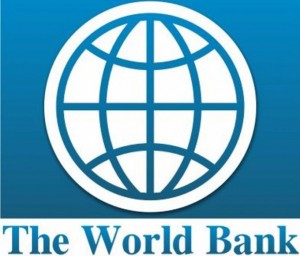Africa’s economic growth is faltering – World Bank
 Economic Growth in Sub Saharan Africa is expected to drop by almost half of the projected growth rate to 1.6 per cent in 2016.
Economic Growth in Sub Saharan Africa is expected to drop by almost half of the projected growth rate to 1.6 per cent in 2016.
It is the lowest level in over two decades, but increased productivity in agriculture could help boost growth.
The October 2016 Edition of the World Bank’s biannual publication; Africa’s Pulse, showed a downward revision from the 3.2 per cent growth projected in its April 2016 issue, reflecting a continued unfavourable external environment and domestic headwinds.
“The less favourable forecast reflects the disappointing economic activity in the first half of the year” the Pulse said, adding that Nigeria, Angola and South Africa accounted for most of the decline.
Growth is however expected to pick up only slightly in 2017 and 2018. Real Gross Domestic Product (GDP) is forecast to grow 2.9 per cent in 2017 and to rise moderately to 3.6 per cent in 2018.
Albert G. Zeufack, World Bank Chief Economist for the Africa Region, said the slowdown in growth was very alarming as it meant that African economies were not growing to cover the growth in its population.
“What’s more alarming is that with this growth rate of 1.6 per cent, we’re not hitting a point where growth per capita in Africa is negative,” he stated.
Average population growth in Sub-Saharan Africa (SSA) is projected at 2.7 per cent, two points below the forecasted growth for 2017, although there are variations among countries.
Mr Zeufack noted however that there is still hope despite the declining growth as some countries; categorised as established performers, including Tanzania, Ethiopia, Rwanda and Mali showing resilience with continued high growth above six per cent since 1995.
Other countries are also improving their performance, such as Cote D’Ivoire, Cameroon, and Senegal.
The countries in these two categories, he noted, are also the most diversified, reiterating the need for countries in SSA to pursue diversification, as well as good policy environments, and better institutional quality and to accelerate reforms.
Risks are however tilted downwards, thus the need for improved productivity. “The commodity super cycle has ended once and for all. We should not sit and wait for commodity prices to come to the levels we have seen until 2014,” he stated.
He said countries need to accelerate reforms and raise productivity, which is key to growth in the long term.
While productivity should be across all sectors, one key sector identified is the agriculture sector, which is the largest in Africa, employing about two-thirds of the population, but where productivity has been flat over the last 20 years due to failure to absorb technologies available in the sector.
Ms Punam Chuham-Pole, Team lead for Africa’s Pulse said the special section of the Pulse, which focus on agriculture, expressed the need for increased efficiency of spending in agriculture with a focus on investments in infrastructure in the rural space to enhance productivity.
She said better use of the resources in agriculture would bring great benefits to African countries.
Mr Errol George Graham, Lead Economist and Programme Leader for Ghana, said a major challenge for agriculture in Africa is the low level of adoption of technologies as well as access to credit adding that the World Bank is currently working to create collateral agencies to enable farmers to access credit.
He called for increased extension services to get information on availability of new techniques or technology, and demonstration plots to facilitate the use of technology to increase productivity.
He expressed the need for the fixing of infrastructure issues, sometimes through the use of technology. For instance, solar technology could also be used to power irrigation pumps in rural areas.
“The dividends from investments to strengthen markets, expand irrigation, and develop and disseminate improved technologies can be enormous.”
Source: GNA
